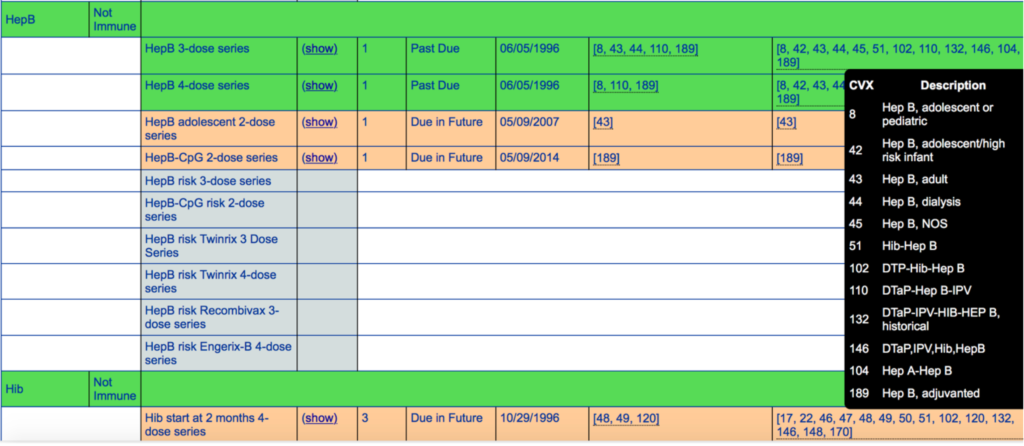Matchmerge Decision Support v11 (MDS v11)
Continuing our practice of innovation, we rewrote Matchmerge Decision Support as MDS v11 from the ground-up when CDC first published its “Clinical Decision Support for immunizations” (CDSi). CDSi represents a much more computable expression of CDC-recommended immunization best practices than did previous, verbal recommendations. It includes configuration parameters (“Supporting Data”) and formal business rules (“Logic Specification”) for over two dozen vaccine-preventable diseases (“antigens”) and over 100 schedules of multi-dose protocols of particular vaccine product (“series”).
Permutations of these hundreds of series, multiplied by the number of vaccine products on the market, person demographics (age, gender, etc.), and patient history and conditions (when they received past vaccines, their contraindications, if any, etc.) produce an astronomical number of special cases that the decision support service must be able to consider. The “rules-based” approach found in nearly every other immunization registry cannot possibly account for all these cases, because it is practically impossible to write rules to cover all of them. As a result, as new person-histories present themselves, rules-based approaches often produce the wrong recommendation. They constantly have to be updated to account for new cases that present. Wrong recommendations are often not even identified.
MDS v11, by contrast, leverages a completely novel computational approach which correctly handles all cases according to the rules CDC supplies in CDSi. Here’s how MDS v11 compares with rules-based approaches:
| Other Immunization Registry | Matchmerge Decision Support v11 |
|---|---|
| Rules-based “Vaccine Forecast Module” (aka decision support service) only approximates common groups of use cases. Rules need to constantly be maintained as new use cases appear. | No “rules” to maintain. No need to constantly maintain rules as unexpected cases fail. Patented, innovative approach automatically accommodates all possible combination of inputs. |
| Follows CDSi exactly. | Synchronizes immediately with CDSi Supporting Data upgrades. Accommodates custom Supporting Data. |
| Implementation pre-dates CDSi; cannot return all the detail of the CDSi specification | Options to return any of the detail of CDSi: grouped forecasts, or individual antigens, series, and products. |
| Difficult to explain to users why a certain recommendation is returned | Testing Tool and Analyzer make it easy to see exactly why a particular recommendation is returned. Very handy for non-obvious cases. |

